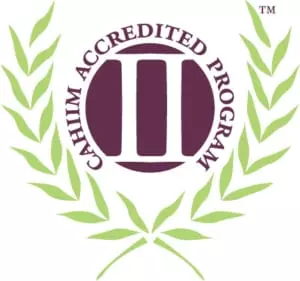Academic Integrity Statement
Academic work is evaluated on the assumption the work presented is the student's own, unless designated otherwise. Anything less is unacceptable and is considered academically dishonest. Specific terms related to academic dishonesty are defined as follows: · Cheating – Using or attempting to use unauthorized materials, information, or study aids in any academic work submitted for credit. Alteration or misuse of college documents pertaining to academic records by any means including computer resources or other equipment also is included within this definition of "cheating."
- Plagiarism – Submitting academic work for credit that includes material copied or paraphrased from published or unpublished work(s) without documentation.
- Fabrication – Deliberately falsifying or inventing any information or citation in academic work.
- Facilitating Academic Dishonesty – Knowingly helping, attempting to help, or being helped by another to violate the College's policy on academic integrity.
- Any violations of academic integrity are subject to sanctions and/or disciplinary actions as outlined in the Student Conduct section of this handbook.
Enrollment/Registration:
- Enrollment procedures and class times are published online at www.mecc.edu several weeks before enrollment. Questions about enrollment not answered online should be directed to the Admissions Office. Students are responsible for assuring that they are enrolled in the appropriate classes and that adds, drops, swaps, and withdrawals are implemented as expected. Class registration is available online at MyMECC for students who have completed the admission process. You are encouraged to enroll as early as possible. You may adjust your schedule by adding, dropping, and/or swapping classes throughout the enrollment period. After the schedule adjustment period, you may drop classes or withdraw completely only in accordance with regulations stated in the current College Catalog. You are urged to promptly report any changes in your status online using MECC Online so your official records are accurate and up-to-date. Address and telephone number changes are especially important so that correspondence from the College can reach you without delay.
- Advising: When you have declared a program of study at MECC, you will be assigned a faculty advisor to assist you in choosing the appropriate classes during your pursuit of a degree or certificate. When you are assigned a faculty advisor, he or she will become your main point of contact for academic issues that impact educational progress. Because faculty schedules vary throughout the year, scheduling an appointment to meet with your faculty advisor is recommended. However, if you have not yet chosen a program of study, or if your faculty advisor is not available, academic advising is also available through the Office of Student Services or other faculty within your area of interest. The mission of academic advising is to partner with students to help them define, plan and progress towards their educational goals by fostering independence, facilitating a professional, supportive environment and promoting student development skills. In general, all academic advisors assist students in selecting proper courses as related to their declared program, interpreting curriculum requirements and assessing academic progress. Academic advisors are familiar with the college and with the programs for which they advise. They can either answer questions directly, or direct students to the appropriate campus resource.
For more information, please contact:
- Nora Blankenbecler, RHIA
Director/Advisor, Health Information Management
Business and Information Technology Division
Phillips Taylor Hall, Room 242
276-523-9054
- Sabrina Ward, RHIA, CPC, CCS
Professor/Advisor, Health Information Management
Business and Information Technology Division
Phillips Taylor Hall, Room 241
276-523-9060
